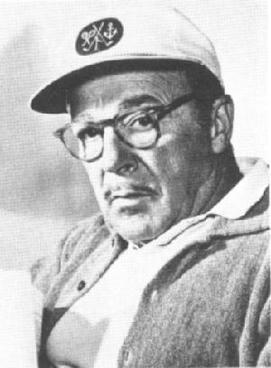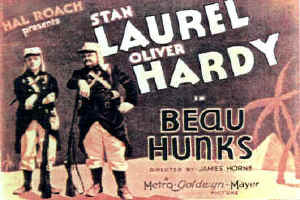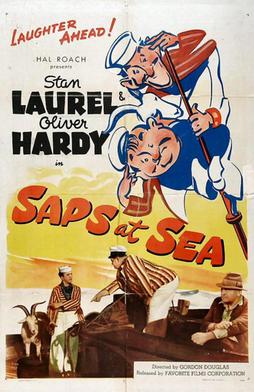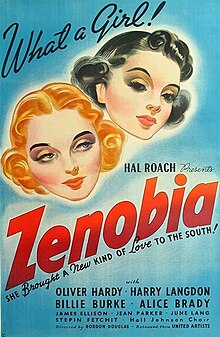Plot
In 1870, Dr. Henry Tibbett, a Mississippi country doctor is called on by a travelling circus trainer to cure his sick elephant. After the doctor heals the grateful beast, the elephant becomes so attached to him that it starts to follow him everywhere. This leads to the trainer suing Dr. Tibbett for alienation of affection.
The presence of the elephant also endangers the engagement of Dr.Tibbett's daughter Mary to the son of the prominent Carter family, who are social snobs looking for an excuse to call off the wedding.
Things are resolved to everyone's satisfaction when the "male" elephant is discovered to be pregnant; and Dr.Tibbett helps deliver a healthy baby pachyderm.

Laurel and Hardy were a British-American comedy team during the early Classical Hollywood era of American cinema, consisting of Englishman Stan Laurel (1890–1965) and American Oliver Hardy (1892–1957). Starting their career as a duo in the silent film era, they later successfully transitioned to "talkies". From the late 1920s to the mid-1950s, they were internationally famous for their slapstick comedy, with Laurel playing the clumsy, childlike friend to Hardy's pompous bully. Their signature theme song, known as "The Cuckoo Song", "Ku-Ku", or "The Dance of the Cuckoos" was heard over their films' opening credits, and became as emblematic of them as their bowler hats.

Oliver Norvell Hardy was an American comic actor and one half of Laurel and Hardy, the double act that began in the era of silent films and lasted from 1926 to 1957. He appeared with his comedy partner Stan Laurel in 107 short films, feature films, and cameo roles. He was credited with his first film, Outwitting Dad, in 1914. In most of his silent films before joining producer Hal Roach, he was billed on screen as Babe Hardy.

The Rogue Song is a 1930 American pre-Code romantic and musical film that tells the story of a Russian bandit who falls in love with a princess, but takes his revenge on her when her brother rapes and kills his sister. The Metro-Goldwyn-Mayer production was directed by Lionel Barrymore and released in two versions, with and without sound. Hal Roach wrote and directed the Laurel and Hardy sequences and was not credited. The film stars Metropolitan Opera singer Lawrence Tibbett—who was nominated for an Academy Award for Best Actor for his performance—and Catherine Dale Owen. Laurel and Hardy were third-billed; their sequences were filmed at the last minute and interspersed throughout the film in an attempt to boost its potential box-office appeal.

Harold Eugene "Hal" Roach Sr. was an American film and television producer, director, screenwriter, and centenarian, who was the founder of the namesake Hal Roach Studios.

Stan Laurel was an English comic actor, writer, and film director who was one half of the comedy duo Laurel and Hardy. He appeared with his comedy partner Oliver Hardy in 107 short films, feature films, and cameo roles.

Gordon Douglas Brickner was an American film director and actor, who directed many different genres of films over the course of a five-decade career in motion pictures.

Beau Hunks is a 1931 American Pre-Code Laurel and Hardy film, directed by James W. Horne.

Henry "Harry" Philmore Langdon was an American comedian who appeared in vaudeville, silent films, and talkies.

Pardon Us is a 1931 American pre-Code Laurel and Hardy film. It was the duo's first starring feature-length comedy film, produced by Hal Roach and Stan Laurel, directed by James Parrott, and originally distributed by Metro-Goldwyn-Mayer in 1931.

Chickens Come Home is a 1931 American pre-Code short film starring Laurel and Hardy, directed by James W. Horne and produced by Hal Roach. It was shot in January 1931 and released on February 21, 1931. It is a remake of the 1927 silent film Love 'em and Weep in which James Finlayson plays Hardy's role and Hardy plays a party guest.

Flying Elephants is a two-reel silent film from 1928 directed by Frank Butler and co-written and produced by Hal Roach. It stars Stan Laurel and Oliver Hardy as a pair of battling cavemen.

Saps at Sea is a 1940 American comedy film directed by Gordon Douglas, distributed by United Artists. It was Laurel and Hardy's last film produced by the Hal Roach Studios, as well as the last film to feature Ben Turpin and Harry Bernard.

Habeas Corpus is a silent short subject co-directed by Leo McCarey and James Parrott starring comedy duo Laurel and Hardy. It was released by Metro-Goldwyn-Mayer on December 1, 1928

The Bohemian Girl is a 1936 comedic feature film version of the opera The Bohemian Girl by Michael William Balfe. Directed by James W. Horne and Charles Rogers, and it was produced at the Hal Roach Studios, and stars Laurel and Hardy, and Thelma Todd in her final film role. This was also the only appearance of Darla Hood in a full-length feature produced by Hal Roach.
Oliver Norvell Hardy was an American comic actor and one half of Laurel and Hardy, the double act that began in the era of silent films and lasted from 1927 to 1957. He appeared with his comedy partner Stan Laurel in 107 short films, feature films, and cameo roles. He was credited with his first film, Outwitting Dad, in 1914. In most of his silent films before joining producer Hal Roach, he was billed on screen as Babe Hardy.

Blotto is a 1930 American pre-Code comedy film directed by James Parrott and starring Stan Laurel and Oliver Hardy. The short was produced by Hal Roach and originally distributed by Metro-Goldwyn-Mayer.

Swiss Miss is a 1938 comedy film starring Laurel and Hardy. It was directed by John G. Blystone, and produced by Hal Roach. The film features Walter Woolf King, Della Lind and Eric Blore.

Laughing Gravy is a 1931 short film comedy starring Laurel and Hardy. It was directed by James W. Horne, produced by Hal Roach and distributed by Metro-Goldwyn-Mayer.

The Golden Age of Comedy (1957) is a compilation of silent comedy films from the Mack Sennett and Hal Roach studios, written and produced by Robert Youngson.

Stan & Ollie is a 2018 biographical comedy-drama film directed by Jon S. Baird. The script, written by Jeff Pope, was inspired by Laurel and Hardy: The British Tours by A.J. Marriot which chronicled the later years of the comedy double act Laurel and Hardy; the film stars Steve Coogan and John C. Reilly as Stan Laurel and Oliver Hardy. The film focuses on details of the comedy duo's personal relationship while relating how they embarked on a gruelling music hall tour of the United Kingdom and Ireland during 1953 and struggled to get another film made.



















